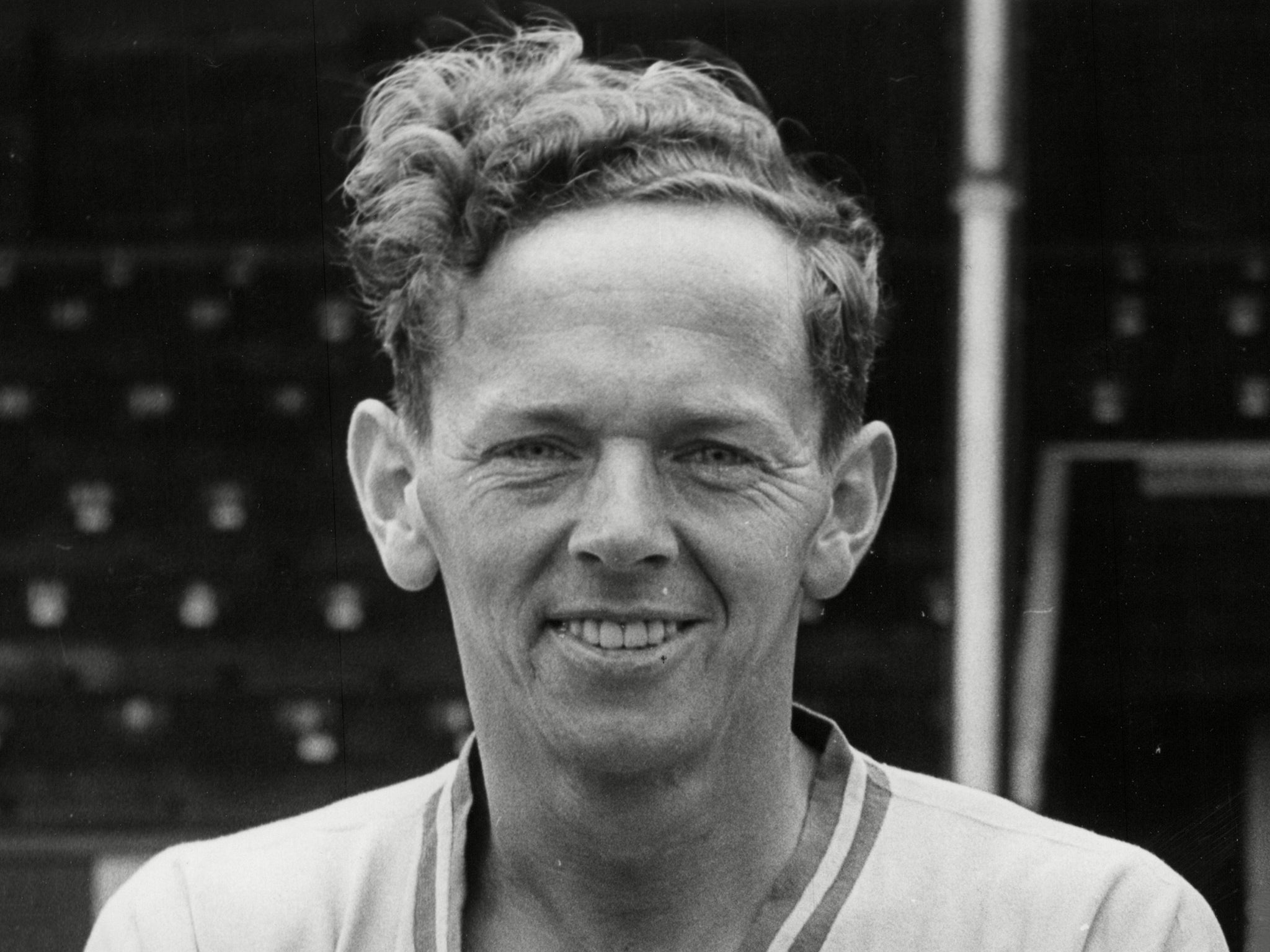Gordon Astall: Forward who terrorised defences for Plymouth Argyle and Birmingham City
The footballer was the oldest surviving England international and scored more than 100 goals in his club career

Representing at its most dynamic that immediate postwar generation of players who achieved so much in reviving the English game in often difficult circumstances, Gordon Astall, who has died aged 93, was the nation’s oldest living international footballer.
Although he won just two international caps, this firecracker of a forward enjoyed an illustrious 16-year professional career with Plymouth Argyle, Birmingham City and Torquay United. Such all-round excellence might have yielded far more rewards, but Astall played in an era when Stanley Matthews and Tom Finney were at their peak.
He was born in the Lancashire town of Horwich, but despite early success in local footballing circles, trials with neighbouring Bolton Wanderers proved fruitless. National service with the Royal Marines followed and while based on the south coast at Bickleigh Barracks, Astall played amateur football for Southampton. Subsequently dubbed “Flash Gordon” for his blistering pace, and “Cannonball” for the tremendous power in his shooting, this tricky right-winger could beat defenders with ease before delivering pinpoint crosses for his colleagues to capitalise on. Having honed his upper-body strength while in the military, Astall also became an early pioneer of the long throw-in.
In November 1947, he signed for Plymouth Argyle at the age of 20. The club at that time were then based firmly in the old Second Division (now the Championship). Earning a basic £20 per week, Astall made his football league debut three months later, finding himself on the losing side in an encounter with Luton Town. Soon he was an ever-present, both creating and scoring goals with remarkable aplomb.
However, during the 1949/50 season, his career inexplicably stalled as manager, Jimmy Rae, preferred veteran Bill Strauss on the right wing. The move backfired, seeing the Pilgrims relegated down to Division Three (South) for the first time in 20 years.
Improvement came during the 1951/52 season. With Scottish star Alex Govan now on the left flank, and Astall reinstated on the right, the pair duly terrorised opposition defences, bringing the club promotion. As a reward for his consistent performances, Astall was selected for the England B game against their French counterparts at Le Havre, unfortunately going down 7-1.
By now talent scouts were keenly following his progress, and with Second Division Birmingham City having already signed Alex Govan, it came as no surprise when, in 1953, they returned to snap up Astall for £14,000. Between 1947 and 1953 he had made 194 appearances for the Pilgrims, scoring 43 goals.
Astall’s move to the midlands heralded one of the most successful periods in the Blues’ history. However, when new manager Arthur Turner arrived in 1954, it took him some time to warm to the winger’s talents. Delighted to prove the manager wrong, Astall became an emerging force as the Blues won the Second Division title in 1954/55, then finished sixth in the top flight and reached the FA Cup Final a year later. They were odds on favourites to take the trophy, only to lose 3-1 to Manchester City in a game mainly remembered now for the heroics of City’s veteran goalkeeper, Bert Trautmann, who played the last 20 minutes or so with a broken bone in his neck.
There was no time to be despondent, however: with Stanley Matthews away coaching in South Africa, England turned instead to Astall. Making his international debut against Finland in Helsinki in May 1956, he crowned a fine display by scoring England’s third goal in the 5-1 win. Six days later, he won his second cap as England travelled to Berlin where they proceeded to beat world champions West Germany 3-1, in front of 92,000 spectators. Tragically two of that team would die young. Duncan Edwards, a Midlands-born Busby Babe, perished in the Munich air disaster in February 1958. A year later, Jeff Hall, Astall’s great friend and Birmingham City teammate, died of polio.
Further highlights of Astall’s Birmingham career included an appearance in the final of the 1960 Inter-Cities Fairs Cup, soon to become the Uefa Cup. At that time the Blues came up against Barcelona in the Nou Camp, but lost 4-1 after drawing their home leg 0-0.
A year later they lost 4-2 on aggregate to AS Roma. However, such adventures could not mask the team’s increasingly poor league form as new manager, former teammate Gil Merrick, turned increasingly to youth to stave off relegation. Astall was released on a free transfer after playing for the club from 1953 until 1961, making 271 appearances and scoring 67 goals.
Moving back to the south coast and dropping down the leagues, he made his debut for Torquay United in their 2-1 defeat at home to Crystal Palace. But he was not able to prevent them being relegated that year to the Fourth Division. Following an Achilles injury, he retired early in the 1963 season, later having a successful career in the insurance industry.
Despite three hip replacements and a new knee, he retained an interest in the game by coaching local teams. A keen darts player, he loved his golf and excelled at bowls. Sadly, dementia took an increasing hold on his life. His wife, June Chapman, predeceased him. He is survived by a son and a daughter.
Gordon Astall, footballer, born 22 September 1927, died 21 October 2020



Bookmark popover
Removed from bookmarks